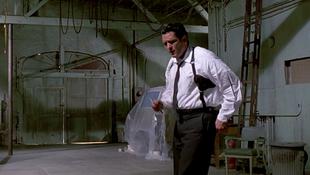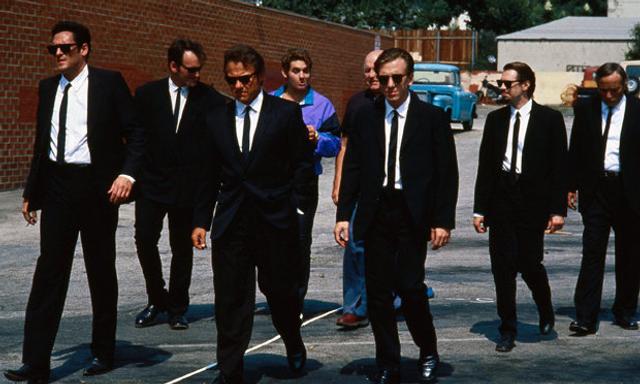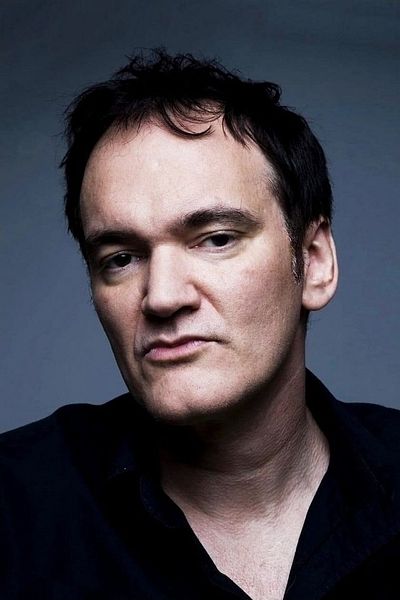The 90s were a shot in the arm for American cinema after the previous decade became bloated and excessive.
The New Hollywood era that started with 'Bonnie and Clyde' in 1967 and ended with 'Heaven's Gate' in 1980 made way for the era of blockbuster era of Spielberg, Reitman and Landis.
The decade had the occasional flourish from esteemed auteurs, with Oliver Stone proving that audiences will show up to a movie if they like the director enough, but by and large, the 1980s was not the decade for studios to take risks on young, heady filmmakers.
A young Steven Soderbergh changed that in 1989 with 'Sex, Lies and Videotape', and ushered in a new era of American cinema.
Independent cinema had existed long before Soderbergh and Tarantino were defining the medium, with John Cassavetes an early champion of the genre, but it was these two young directors that took the world by storm and made independent cinema profitable.
'Reservoir Dogs' is one of the most famous examples of independent cinema of all time, and you can thank Tarantino's film for the indie film boom that followed.
So many of our greatest filmmakers today started out on the indie circuit such as Rian Johnson, Damien Chazelle, Christopher Nolan, and Ryan Coogler, and it was the success of 'Reservoir Dogs' that opened the doors for indie filmmakers.
30 years on, we are examining the legacy of Tarantino's seminal debut.
Like A Virgin
The opening scene of 'Reservoir Dogs' is a hallmark of what Tarantino's films would become famous for; a group of characters are having a rapid-fire, 'Seinfeld conversation about something in popular culture.
In this instance, Tarantino's Mr. Brown is giving a tirade about the lyrical content of Madonna's 1984 hit 'Like A Virgin' while the rest of his crew discuss the career of Madonna.
For a film with such striking iconography (the film is probably responsible for the black tie and sunglasses combo becoming hip) the film starting out with this almost Altman-esque group dialogue scene is a hell of a calling card.
The path to 'Reservoir Dogs' getting made could almost have been a Tarantino film itself; Tarantino's producing partner Lawrence Bender gave the script for the film to his acting teacher, and the acting teacher's wife gave the script to legendary Hollywood tough guy Harvey Keitel.
It is fitting that the story of 'Reservoir Dogs', and indeed the career of Tarantino, is indebted to Harvey Keitel, as he was also in on the ground floor as one Martin Scorsese was rewriting the rulebook in 70s American cinema.
Two decades later, Keitel was instrumental in unearthing the heir apparent to Scorsese.
Keitel gets top billing in the 'Reservoir Dogs' ensemble which contains other great heavy hitters like Steve Buscemi, Tim Roth and Michael Madsen, and Keitel's stately prescence lends the film verisimilitude.
Little green bag
When Shane Black wrote 'Lethal Weapon', it ushered in a new era where the writer became just as important as the star or director.
Superstar screenwriters had existed before Black, with writers like William Goldman, Paddy Chayefsky and Robert Towne among notable screenwriters that attained celebrity status, but Tarantino represented a new 90s trend; the young, hip screenwriter that was on the cutting edge.
Tarantino was a triple threat - he could write, he could direct, and he could act (admittedly, not very well in the latter instance) and it is easy to forget that Tarantino was 28 when the film was being made.
Tarantino is an avowed cinephile, and would pepper in references no matter how oblique or obtuse in his work to other films, and this personality-driven writing became a staple of 90s cinema.
'Reservoir Dogs' set Tarantino on the same path as Billy Wilder, a filmmaker who got the best out of his actors, dialogue taking precedence, and the camera serving as a neutral observer to the action.
Tarantino breaks the latter rule in what is the most infamous scene from 'Reservoir Dogs', where Michael Madsen's Mr. Blonde tortures a police officer while dancing to the 70s hit 'Stuck In The Middle With You', and Tarantino borrows a trick from Hitchcock in 'Psycho'.
When Madsen goes to cut the ear off the police officer, the camera turns away in the same way the audience reflexively would, and you never see Madsen cut the ear off.

This shocking scene, where implication is the driving factor, is similar to how Hitchcock shocked audiences with the shower scene in 'Psycho' over 30 years earlier - you think you see the knife penetrate the body, but thanks to clever cutting, or in the case of 'Reservoir Dogs', it literally moves the camera away - the grisly detail is left up to your imagination.
Despite its assured classic status now, 'Reservoir Dogs' was only a modest hit when it released, doubling its small $1.2 million budget at the box office, but a film from an unknown filmmaker even being released and receiving major distribution is a miracle in itself.
The cult of 'Reservoir Dogs' grow exponentially through the rest of the 1990s, in particular after 'Pulp Fiction' took the world by storm in 1994.
VHS sales of the film were incredibly strong, and sales of the soundtrack album were particularly strong - the soundtrack received a Brit award nomination in 1994, and the album attained platinum status in the UK.
In terms of calling card films for the young auteurs that defined the 1990s, Tarantino's debut is the most self-assured and confident.
Other acolytes of the 90s American cinema boom (or as some writers have dubbed it, the generation of writers who grew up watching movies on VHS) including Paul Thomas Anderson, Kevin Smith, and Wes Anderson made their debut in this decade, but their debut films are mere candles to the supernova that is 'Reservoir Dogs'.
The critical and commercial success of 'Once Upon A Time In Hollywood' in 2019 proved that the Tarantino brand is as strong as it's ever been, and Tarantino is the rare director that can say his Oscar-winning film from 2019 is as good as his debut.




















































































